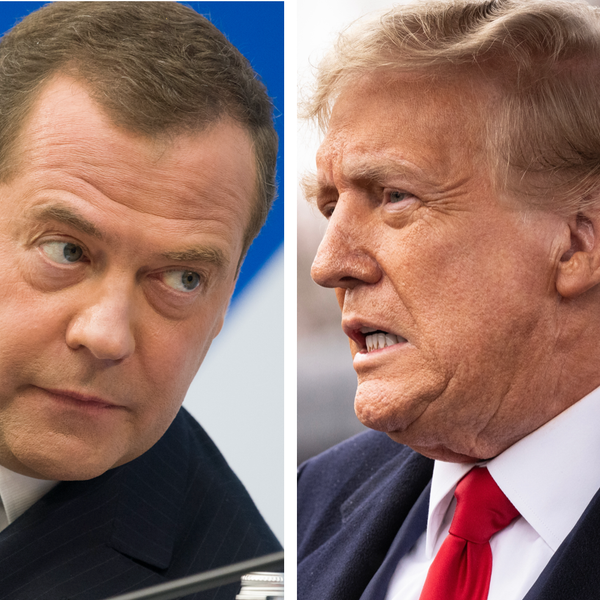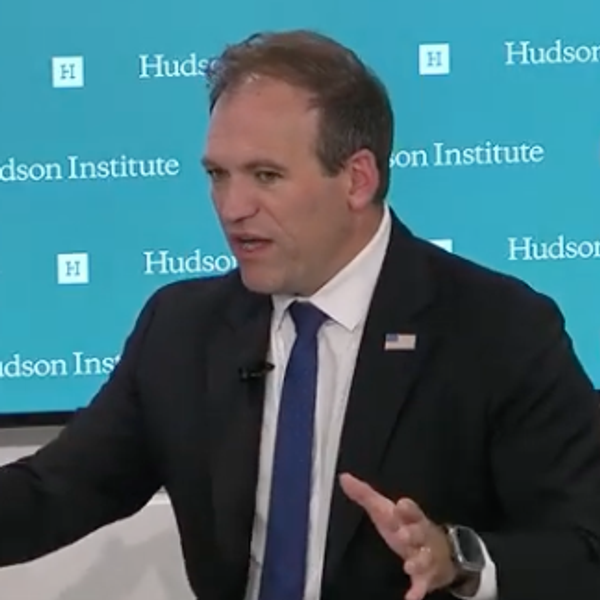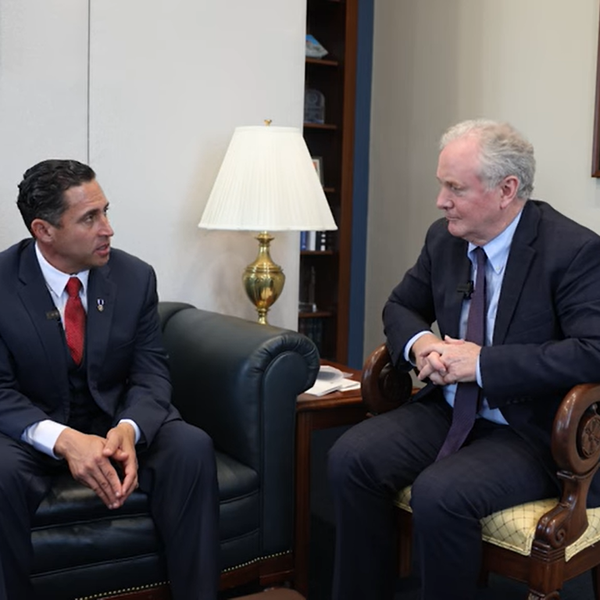In a joint press conference following his recent meeting with Secretary of State Anthony Blinken, Israeli Prime Minister Benjamin Netanyahu smilingly commented that he had dealt with many U.S. presidents (four) while heading Israel’s government. Netanyahu had good reason to feel relaxed in referring to his history of dealings with Washington. It is a history of multiple U.S. administrations, of both parties, effectively giving Israel a mostly blank check in its use of force — in various forms, including in ways that are contrary to U.S. interests.
The latest upsurge in violence between Israelis and Arabs was a focus of Blinken’s trip to the Middle East. But that longer history of U.S.-Israeli relations — with the United States forgoing the use of what would be substantial leverage over Israel — needs to be kept in mind to understand what has led to the most recent bloodshed.
In this regard, Blinken’s posture during his visit to Israel was self-contradictory. While speaking of the need to tamp down the violence, he also recited the politically de rigueur Washington mantra that “America’s commitment to [Israel’s] security remains ironclad,” “has never wavered,” and “never will.” And he recited it with full knowledge of the expansive way in which Israeli governments interpret “security of Israel,” to include use of force that goes far beyond well-focused defense of that security and includes much that is offensive and aggressive, and much that has more to do with territorial aggrandizement than with the safety of Israeli citizens. The avowedly unconditional nature of U.S. support removes any incentive for Israel to change that pattern.
Israel-Palestinian violence over recent months has, as usual, entailed far more Palestinian victims than Israeli ones. The United Nations envoy for the Middle East reported in December that in 2022 “more than 150” Palestinians had died at the hands of Israeli forces, with “more than 20” Israeli deaths from Palestinian violence. The violence of the last several days was initiated, as is more often than not the case, by Israel. In this instance it was an Israeli raid on a refugee camp in the West Bank city of Jenin, a day before Blinken’s arrival, which led to the death of 10 Palestinians, including a 61-year-old woman. Violent reactions by Palestinians ensued, including the shooting of seven Israelis in East Jerusalem.
The more-extreme-than-ever right-wing government that Netanyahu currently heads makes up another part of the political context of the current violence. That extremism will lead to more provocations likely to induce violence, such as National Security Minister Itamar Ben-Gvir’s stroll on the religiously ultra-sensitive site that Jews know as the Temple Mount and Muslims call the Noble Sanctuary. Another high-profile extremist in Netanyahu’s government, Bezalel Smotrich, has been given ill-defined responsibilities for the administration of the occupied territories.
Officially conducted violence evidently is not enough for this government. Netanyahu announced an acceleration of the licensing of firearms to Israeli civilians, with the objective of arming “thousands” of them. This move is nothing less than a green light for uncontrolled Jew-on-Arab violence — especially as conducted by West Bank settlers, who perpetrated a wave of nearly 150 attacks against Palestinian residents in just one day last Saturday. The settlers are even less concerned than the government about whether their victims are innocent or guilty of any violence themselves, and the settler violence is driven in large part by state-sanctioned hatred of Arabs.
The extremism of the current Israeli government is not just a given based solely on domestic Israeli politics. U.S. policy has been relevant here, too. Most Israeli citizens as well as Israeli politicians are aware of the importance of the U.S. relationship to their country. If U.S. policy had not for years in effect condoned the more extreme and violent turns that Israeli policy has taken, it is unlikely that last fall’s Israeli election would have produced the results that it did.
A further context for the violence of today has been the half-century of illegal Israeli colonization of the West Bank, accompanied by little more than wrist-slaps from the United States. Blinken uttered the usual U.S. support for a two-state solution to the Israeli-Palestinian conflict, even though the Israeli colonization project has now gone so far that many observers have concluded that a two-state solution is no longer a possibility, and many Israelis and Palestinians, in their different ways, have moved on from that concept. Netanyahu’s recent statements appear to have driven further nails into the coffin of the two-state solution. And so, Palestinians are denied any hope for gaining control over their own future, with everything that lack of hope implies regarding the possibility of violent responses.
Blinken’s subsequent visit to Palestinian Authority President Mahmoud Abbas provided no encouragement on that score; Blinken’s only offer was some additional funding of the United Nations relief agency that serves Palestinian refugees. Blinken asked Abbas to do more to control violence, but apparently did not explain why the “ironclad” U.S. commitment to Israeli security is unmatched by any remotely comparable commitment to the security of Palestinians. Although Blinken’s statement on the tarmac upon first landing in Israel was an extended expression of sympathy for the seven Israelis killed in the attack in East Jerusalem — an expression he repeated at a later press conference — his only voicing of sympathy on this trip for the death of innocent Palestinians was a single sentence in his press conference with Abbas.
That Netanyahu’s government sees nothing in U.S. policy toward Israel to deter it from offensive violence applies, unfortunately, not just to violence against Palestinians. A recent reminder of this was a drone attack against a military installation in Isfahan, Iran, which almost all observers have concluded was an Israeli operation. The attack was part of a sustained campaign of clandestine Israeli operations inside Iran that are offensive and not in response to anything comparable that Iran is doing in Israel. Israeli governments and especially Netanyahu have long stoked tensions and confrontation with Iran for several reasons, not least of which is to deflect blame and attention from anything Israel is doing when it comes to violence and instability in the Middle East. Again, the Israeli use of violence has gone against U.S. policies — with Netanyahu having actively and consistently undermined U.S. diplomacy regarding Iran. And again, Israeli governments have done so without paying a diplomatic, financial, or political penalty. As a result, they have incentive to keep doing such things.
In one instance where it might seem that the Israeli government is leaning in a less rather than more violent direction — its reluctance to provide military aid to embattled Ukraine — a violent agenda underlies its policy. That Israeli policy contravenes U.S. policy, and Netanyahu’s government has even balked at Washington’s transport to Ukraine of old air defense systems that have been stored in Israel. But Netanyahu’s government is not concerned with bloodshed in Ukraine and with trying to de-escalate the war there. Its concern instead is with Israel’s relationship with Russia, and with keeping that relationship friendly enough so that Russia will continue to turn a blind eye to Israel’s sustained campaign of aerial bombardment against targets in Syria. This campaign is one more offensive Israeli use of force, with hardly any munitions being fired in the opposite direction.
If the United States really wants to reduce violence in the Middle East, it must look first to how it has shaped incentives in what it still considers its most important relationship in the region.














